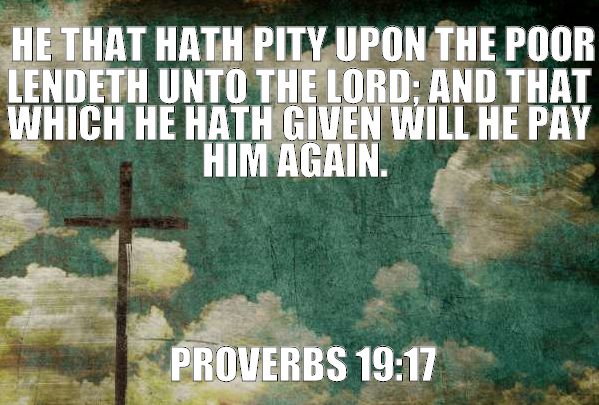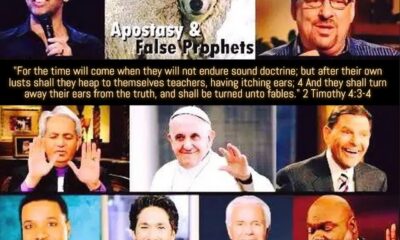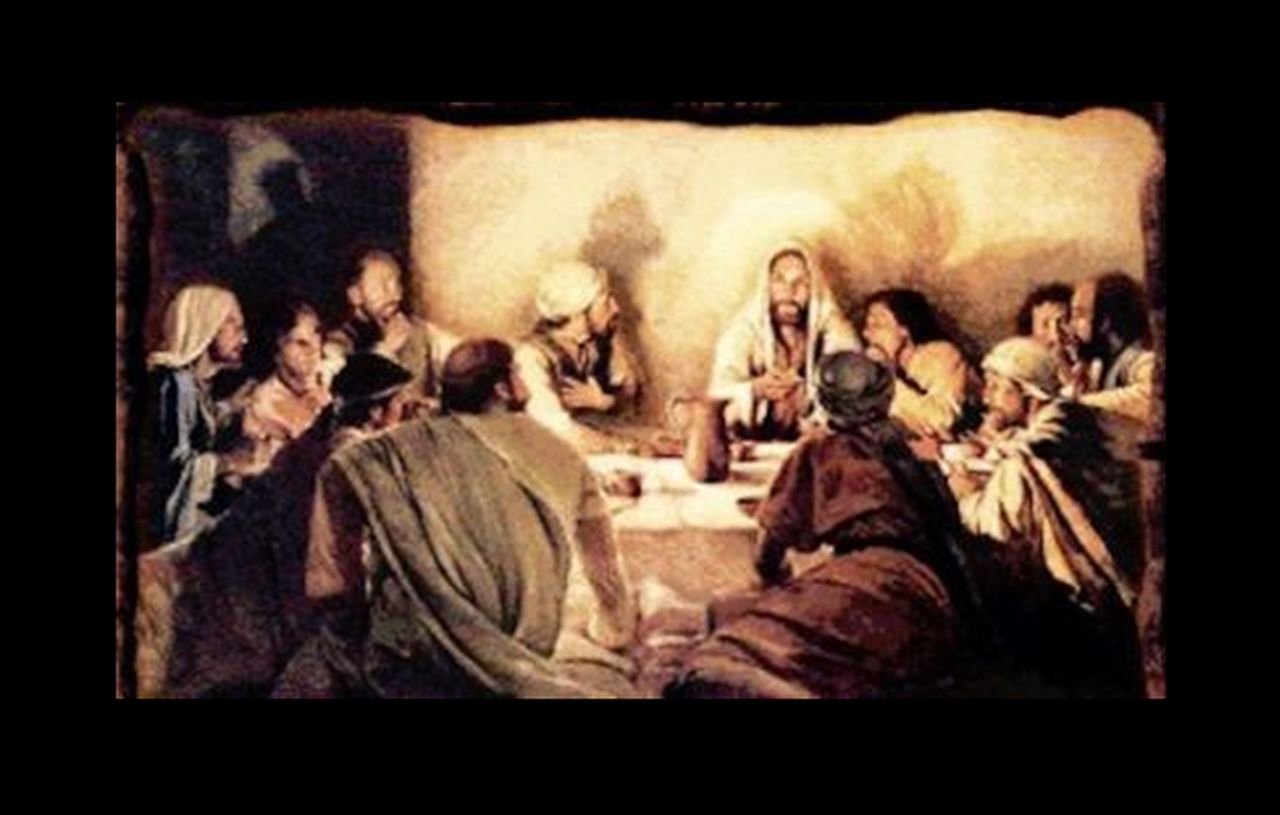
“I will have Mercy, and not Sacrifice”: What does this really Mean? [podcast]
“But go ye and learn what that meaneth, I will have mercy, and not sacrifice: for I am not come to call the righteous, but sinners to repentance.” Matthew 9:13
Jesus specifically instructs us to “go ye and learn what that meaneth.”
UNTIL, as an individual, you begin to realize just how wicked you really are, you will never begin to appreciate what our KING and Savior did on that cross!
Matthew 9:9-13 – Jesus calls Matthew
Mat 9:9 And as Jesus passed forth from thence, he saw a man, named Matthew, sitting at the receipt of custom: and he saith unto him, Follow me. And he arose, and followed him.
Mat 9:10 And it came to pass, as Jesus sat at meat in the house, behold, many publicans and sinners came and sat down with him and his disciples.
Mat 9:11 And when the Pharisees saw it, they said unto his disciples, Why eateth your Master with publicans and sinners?
Mat 9:12 But when Jesus heard that, he said unto them, They that be whole need not a physician, but they that are sick.
Mat 9:13 But go ye and learn what that meaneth, I will have mercy, and not sacrifice: for I am not come to call the righteous, but sinners to repentance.
Approaching God on the basis of His divine mercy and in holy fear:
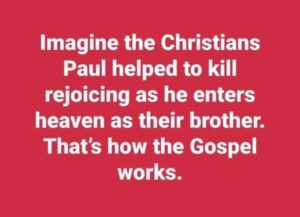 “But as for me, I will come into thy house in the multitude of thy MERCY: and in thy FEAR will I worship toward thy holy temple.” Psalms 5:7
“But as for me, I will come into thy house in the multitude of thy MERCY: and in thy FEAR will I worship toward thy holy temple.” Psalms 5:7
In light of our own utter depravity and unworthiness, we must approach God on the basis of His sheer mercy.
“Not by works of righteousness which we have done, but according to his mercy he saved us, by the washing of regeneration, and renewing of the Holy Ghost; 6 Which he shed on us abundantly through Jesus Christ our Saviour; 7 That being justified by his grace, we should be made heirs according to the hope of eternal life.” Titus 3:5-7
With no exception, each of us is in utter need of God’s mercy – initially at salvation and ongoing.
“But we are all as an unclean thing, and all our righteousnesses are as filthy rags; and we all do fade as a leaf; and our iniquities, like the wind, have taken us away.” Isaiah 64:6
It reveals a great imbalance when someone preaches “holiness” and never mercy. There is hope in the Gospel – the only hope – and that is Christ who said “I will have mercy, and not sacrifice.” In this passage Jesus is revealing to us that He came to save sinners, not to destroy them (Luke 9:56; John 3:17). Yet He only saves those who are willing to admit they are sinners and repent, putting their faith in Him, following Him. Prayerfully declaring verses like Romans 7:18, 24 and Titus 3:5-7 daily defuses evil self-righteousness.
In the divine economy, does mercy triumph over judgment or does judgment triumph over mercy? – “For he shall have judgment without mercy, that hath shewed no mercy; and mercy rejoiceth against judgment“ (James 2:13).
Are we preaching AT people or TO people? Do we view our listeners are enemies OR eternal souls that Jesus loves and came to save from their sins?
Paul wrote:
“This is a faithful saying, and worthy of all acceptation, that Christ Jesus came into the world to save sinners; of whom I am chief. 16 Howbeit for this cause I obtained mercy, that in me first Jesus Christ might shew forth all longsuffering, for a pattern to them which should hereafter believe on him to life everlasting. 17 Now unto the King eternal, immortal, invisible, the only wise God, be honour and glory for ever and ever. Amen.” 1 Timothy 1:15-17
All of our unrighteousness went on Christ so that all of His righteousness could come on us.
“For he hath made him to be sin for us, who knew no sin; that we might be made the righteousness of God in him.” 2 Corinthians 5:21
Adam is the father of the old man, the fallen man. Jesus is the King of the new man the new creation (Romans 5).
ALL men have sinned against God and are guilty (Romans 3). Yet, only a few are willing to honestly admit their sin before God and receive His mercy. Flanking our LORD on crosses also, one of those sinners humbled himself and is and forever will be in glory. The other chose to harden his heart and consequently is and forever will be in Hell.
God will forgive “ALL sins” except one:
“Verily I say unto you, ALL sins shall be forgiven unto the sons of men, and blasphemies wherewith soever they shall blaspheme: 29 But he that shall blaspheme against the Holy Ghost hath never forgiveness, but is in danger of eternal damnation:” Mark 3:28-29
How about the two men who went up to pray? One was heard and the other not (Luke 18:9-14).
“Israel was bringing sacrifices and offerings to the Lord on their feast days, but their lives were corrupt, so their offerings were rejected by God. He would rather have righteousness than ritual. Even in the wilderness, when professing to worship Jehovah, they had practiced idolatry with Moloch and other idols, such as Sikkuth and Chiun.” William MacDonald
All men have sinned and God only forgives and saves those who fall upon His sheer mercy in conviction, contrition, and brokenness. All others forfeit His gift of salvation in Christ.
“Hell is full of people who think they deserve heaven. Heaven is full of people who know they deserve Hell.” Unknown
Notes on this passage from William MacDonald, Believer’s Bible Commentary
“Matthew 9:9-13
I. Jesus Calls Matthew the Tax Collector (9:9-13)
9:9 The tense atmosphere building up around the Savior is temporarily relieved by Matthew’s simple and humble account of his own call. A tax-collector or custom house officer, he and his fellow officials were hated intensely by the Jews because of their crookedness, because of the oppressive taxes they exacted, and most of all, because they served the interests of the Roman Empire, Israel’s overlord. As Jesus passed the tax office, He said to Matthew, ‘Follow Me.’ The response was instantaneous; he arose and followed; leaving a traditionally dishonest job to become an instant disciple of Jesus. As someone has said, ‘He lost a comfortable job, but he found a destiny. He lost a good income but he found honor. He lost a comfortable security, but he found an adventure the like of which he had never dreamed.’ Not the least among his rewards were that he became one of the twelve and was honored to write the Gospel which bears his name.
9:10 The meal described here was arranged by Matthew in honor of Jesus (Luke 5:29). It was his way of confessing Christ publicly and of introducing his associates to the Savior. Necessarily, therefore, the guests were tax-collectors and others generally known to be sinners!
9:11 It was the practice in those days to eat reclining on couches and facing the table. When the Pharisees saw Jesus associating in this way with the social riff-raff, they went to His disciples and charged Him with “guilt by association”; surely no true prophet would eat with sinners!
9:12 Jesus overheard and answered, ‘Those who are well have no need of a physician, but those who are sick.’ The Pharisees considered themselves healthy and were unwilling to confess their need for Jesus. (Actually they were extremely ill spiritually and desperately needed healing.) The tax collectors and sinners, by contrast, were more willing to acknowledge their true condition and to seek Christ’s saving grace. So the charge was true! Jesus did eat with sinners. If He had eaten with the Pharisees, the charge would still have been true—perhaps even more so! If Jesus hadn’t eaten with sinners in a world like ours, He would always have eaten alone. But it is important to remember that when He ate with sinners, He never indulged in their evil ways or compromised His testimony. He used the occasion to call men to truth and holiness.
9:13 The Pharisees’ trouble was that although they followed the rituals of Judaism with great precision, their hearts were hard, cold, and merciless. So Jesus dismissed them with a challenge to learn the meaning of Jehovah’s words, ‘I desire mercy, and not sacrifice’ (quoted from Hos_6:6). Although God had instituted the sacrificial system, He did not want the rituals to become a substitute for inward righteousness. God is not a ritualist, and He is not pleased with rituals divorced from personal godliness—precisely what the Pharisees had done. They observed the letter of the law but had no compassion for those who needed spiritual help. They associated only with self-righteous people like themselves.
In contrast, the Lord Jesus pointedly told them, ‘I did not come to call the righteous, but sinners.’ He perfectly fulfilled God’s desire for mercy as well as sacrifice. In one sense, there are no righteous people in the world, so He came to call all men to repentance. But here the thought is that His call is only effective for those who acknowledge themselves to be sinners. He can dispense no healing to those who are proud, self-righteous, and unrepentant—like the Pharisees.”
Support | STORE | Podcasts | Jail/Prison Ministry | Mexico Mission here | H.O.T. Bible Study [podcast] | Divine Blessings | Exhort One Another Daily | The Return of Christ | The Joy of Fulfilling the Great Commission | The Love of Many Shall Wax Cold | Lie of the Ages (book) | Soul Damning Sins (small book) | Why We Need not Fear Death | Revelation Bombshell!


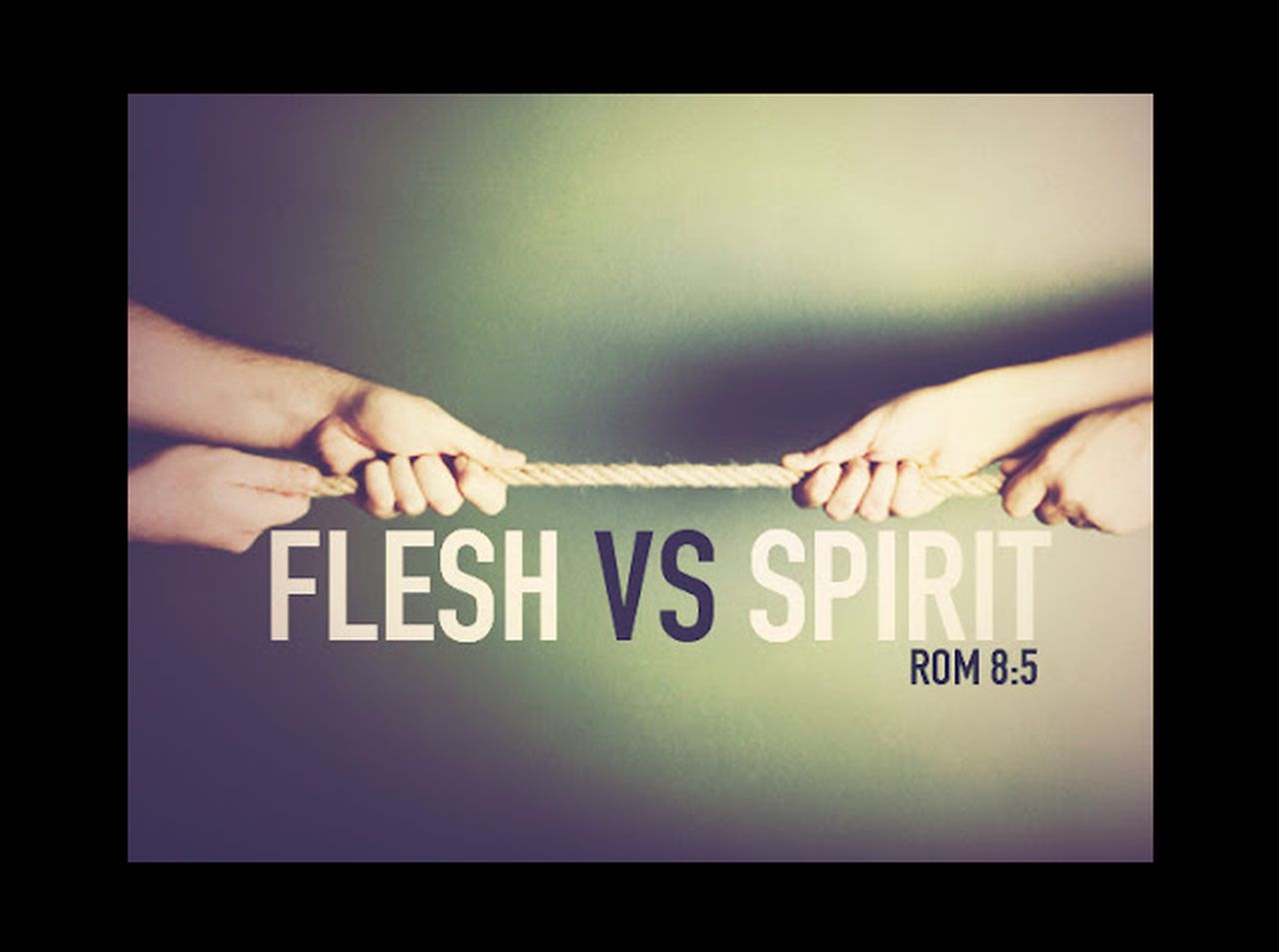
Articles
Despicable Dogs and Stabbing Swine [podcast]

Matthew 7:6
“Give not that which is holy unto the dogs, neither cast ye your pearls before swine, lest they trample them under their feet, and turn again and rend you.”
God’s wisdom is that you have to get rid of the “SCORNER” in order to get rid of the “STRIFE”.
“Cast out the SCORNER, and contention shall go out; yea, STRIFE and reproach shall cease.” Proverbs 22:10
How do we know when someone has truly repented?
“… to the Gentiles, that they should repent and turn to God, and do works meet for repentance.” Acts 26:20
When someone has truly repented, their changed life will be full of the fruit of the Spirit.
“Bring forth fruits meet for repentance” simply means prove you’ve repented with the corresponding restitution of making things right (Matthew 3:7-10; Luke 19:8-9, etc.).
Luke 17
1 Then said he unto the disciples, It is impossible but that offences will come: but woe unto him, through whom they come!
2 It were better for him that a millstone were hanged about his neck, and he cast into the sea, than that he should offend one of these little ones.
3 Take heed to yourselves: If thy brother trespass against thee, rebuke him; and if he repent, forgive him.
4 And if he trespass against thee seven times in a day, and seven times in a day turn again to thee, saying, I repent; thou shalt forgive him.
“And that we may be delivered from unreasonable and wicked men: for all men have not faith.” 2 Thessalonians 3:2
“Behold, I send you forth as sheep in the midst of wolves: be ye therefore wise as serpents, and harmless as doves.” Matthew 10:16
Jesus saw the heart and proof of Zacchaeus’ repentance and granted him salvation.
“And Zacchaeus stood, and said unto the Lord; Behold, Lord, the half of my goods I give to the poor; and if I have taken any thing from any man by false accusation, I restore him fourfold. 9 And Jesus said unto him, This day is salvation come to this house, forsomuch as he also is a son of Abraham. 10 For the Son of man is come to seek and to save that which was lost.” Luke 19:8-10
Support | STORE | Podcasts | Jail/Prison Ministry | Mexico Mission here | All Ministry Updates | The Return of Christ | Stewardship | Where to Give and Where Not to Give | Fruit Abounding to Your Account! | Victory in Jesus | Discipleship | The Glorious Grace of God | The Restoring Love of Our God | God’s Mercy | Spiritual Warfare | Justification | Grace and Good Works [podcast] | Haggai



Articles
Rich in Faith [podcast]
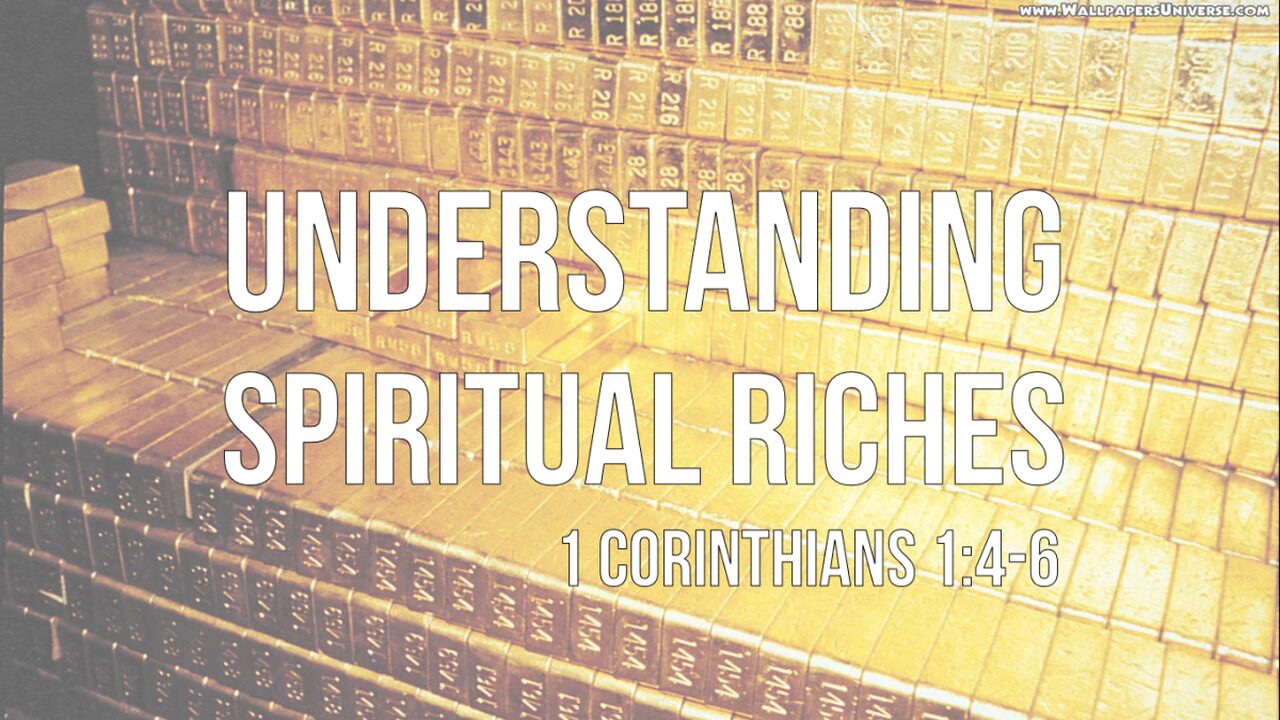
“Them that Love Him”
——WHAT one temporarily has in this fleeting world or doesn’t have, has NOTHING to do with that person’s spiritual state. This is what Jesus taught: “Take heed, and beware of covetousness: for a man’s life consisteth not in the abundance of the things which he possesseth.” (Luke 12:15) In fact James says:
“HEARKEN, MY BELOVED BRETHREN, HATH NOT GOD CHOSEN THE POOR OF THIS WORLD RICH IN FAITH, AND HEIRS OF THE KINGDOM WHICH HE HATH PROMISED TO THEM THAT LOVE HIM?” JAMES 2:5
James says God chooses those for His eternal kingdom “that love him,” namely “the poor of this world.” We are justified by “faith” and not by what we do or do not temporarily possess in this fleeting life.
IF in your mind you rate people by what they have or don’t have in this fleeting sinful world, you are deeply deceived and in utter need of repentance and the washing of water by the Word of God. You are carnally minded (Romans 8:5-6).
Regrettably, it seems that most people professing to be following Christ, the One who gave all, are not the least bit concerned if their brother or sister has a need. God have mercy upon us and grant us repentance in Jesus’ Name! Are these people truly saved?
“Hereby perceive we the love of God, because he laid down his life for us: and we ought to lay down our lives for the brethren. 17 But whoso hath this world’s good, and seeth his brother have need, and shutteth up his bowels of compassion from him, how dwelleth the love of God in him? 18 My little children, let us not love in word, neither in tongue; but in deed and in truth. 19 And hereby we know that we are of the truth, and shall assure our hearts before him.” 1 John 3:16-19
“If we are in Jesus we have the unsearchable riches of Christ (Ephesians 3:8). Unfathomable (in our small minds), infinite wealth and spiritual blessings! Endless mercy, grace, and forgiveness. That is inexhaustible! Why do we need any worldly riches that will rot and corrupt our hearts!? Lay up in your hearts God’s riches! Which are eternal!” Karen Cochran
Some have tens of thousands in the bank and could care less to find out if a sister or brother has a need. The Bible assures us that they are not saved. If you have even a little to give and don’t, it’s because you simply have chosen not to know and abide in Christ.
“What doth it profit, my brethren, though a man say he hath faith, and have not works? can faith save him? 15 If a brother or sister be naked, and destitute of daily food, 16 And one of you say unto them, Depart in peace, be ye warmed and filled; notwithstanding ye give them not those things which are needful to the body; what doth it profit? 17 Even so faith, if it hath not works, is dead, being alone.” James 2:14-17
The financial institutions and their salesmen are vying for your money. They want your money to invest so that you and they earn a financial gain in this life. Christians in need, orphans, and Gospel workers are also available to invest in. To help them is to invest in the LORD’s kingdom and be repaid dividends for eternity. Oh, and your heart will follow where you choose to place your money. Jesus says “Lay not up for yourselves treasures upon earth, where moth and rust doth corrupt, and where thieves break through and steal: 20 But lay up for yourselves treasures in heaven, where neither moth nor rust doth corrupt, and where thieves do not break through nor steal: 21 For where your treasure is, there will your heart be also.” (Matthew 6:19-21)
PRAYER: Holy Father, please break me and make me Your authentic follower. Jesus I love You. Let me walk as You walked, live as You lived, love as You love. Bless this life You gave to be truly crucified with You – dead, buried, and raised up – a vessel of honor for Your glory! In Jesus’ name.
Let’s Grow Together! Sign up here to begin receiving the Moments with Our Master email devotional that is sure to help you grow in His grace and in the knowledge of our LORD and Savior Jesus Christ (2 Pet. 1:2; 3:18). It’s sent out for the edification of the body of Christ. Sign Up HERE.
Support | STORE | Podcasts | Jail/Prison Ministry | Mexico Mission here | All Ministry Updates | More on Assurance here | Because You Care Page | The Greatest of these is Charity | Be Ready in the Morning [podcast] | The Sure Mercies of David [podcast] | That Repentance and Remission of Sins should be Preached [podcast] | At His Feet | Knowing God | The Cross Life | 100’s of Christ-centered Scripture-rich Podcasts | Christology = the Study of Christ


Abiding
Safety in Wise Counsel [podcast]

“Every purpose is established by counsel: and with good advice make war.” Proverbs 20:18
“The steps of a good man are ordered by the Lord: and he delighteth in his way.” Psalms 37:23
“So teach us to number our days, that we may apply our hearts unto wisdom.” Psalms 90:12
“Safety” in wise counsel from God’s wisdom, Word, and including at times with the help of His beloved saints.
“Where no counsel is, the people fall: but in the multitude of counsellors there is safety.” Proverbs 11:14
“The horse is prepared against the day of battle: but safety is of the LORD.” Proverbs 21:31
“For by wise counsel thou shalt make thy war: and in multitude of counsellors there is safety.” Proverbs 24:6
Caprice means a sudden and unaccountable change of mood or behavior.
“Who is a wise man and endued with knowledge among you? let him shew out of a good conversation his works with meekness of wisdom. 14 But if ye have bitter envying and strife in your hearts, glory not, and lie not against the truth. 15 This wisdom descendeth not from above, but is earthly, sensual, devilish. 16 For where envying and strife is, there is confusion and every evil work. 17 But the wisdom that is from above is first pure, then peaceable, gentle, and easy to be intreated, full of mercy and good fruits, without partiality, and without hypocrisy. 18 And the fruit of righteousness is sown in peace of them that make peace.” James 3:13-18
Support | STORE | Podcasts | Jail/Prison Ministry | Mexico Mission here | All Ministry Updates | 100’s of Christ-centered Podcasts | Bible Books Narrated | Bible Study Helps | The Book of James Narrated [podcast] | The Book of Revelation Narrated [podcast] | Colossians Overview [podcast]

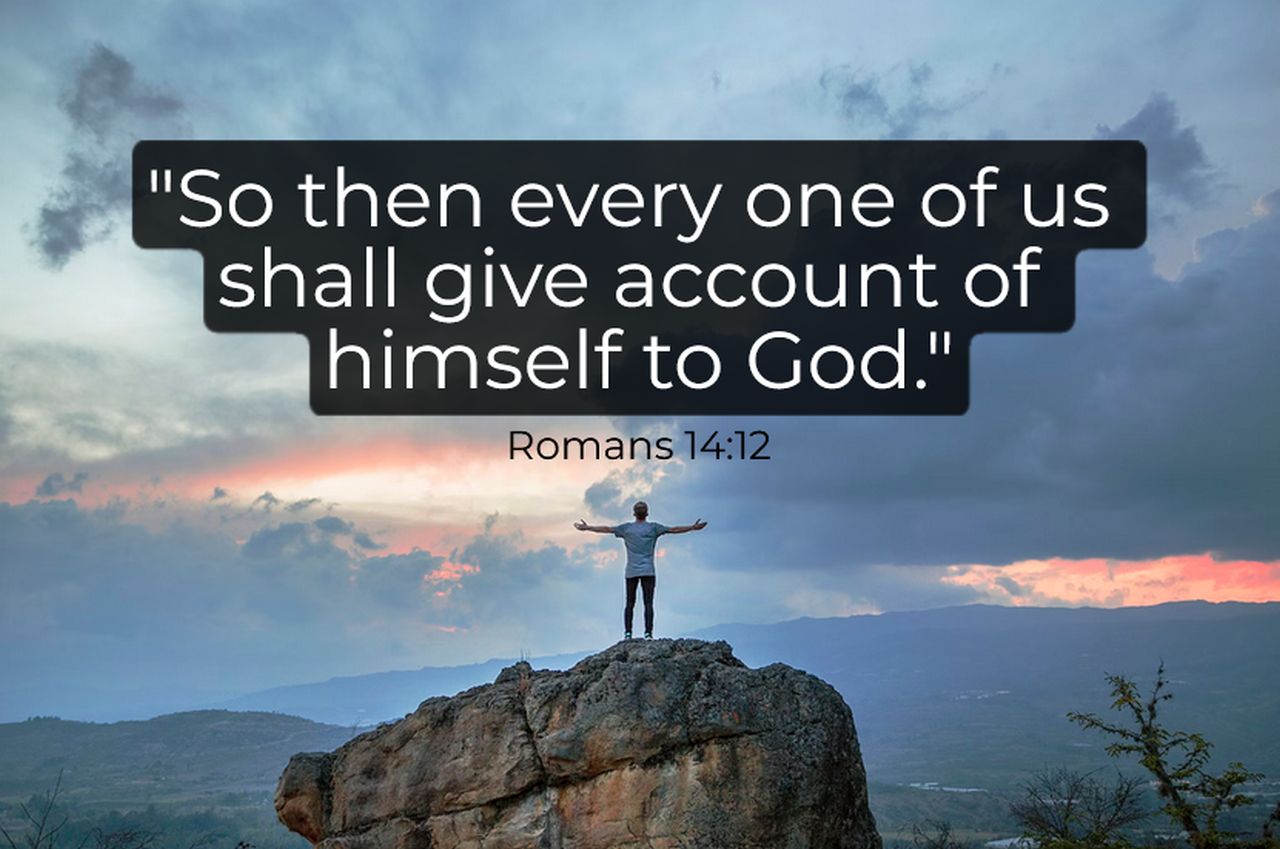

 America12 months ago
America12 months agoThe Drugging of America: The Pharmakeia Sorcery Deception [podcast]

 Articles2 years ago
Articles2 years agoChildren being Rescued in Tunnels: Happening Now – UPDATE!

 Articles8 years ago
Articles8 years agoSelf-Examination in Preparation for the Lord’s Return

 Apostasy2 years ago
Apostasy2 years agoSHOCKING List of False Prophets Most Believe are True










